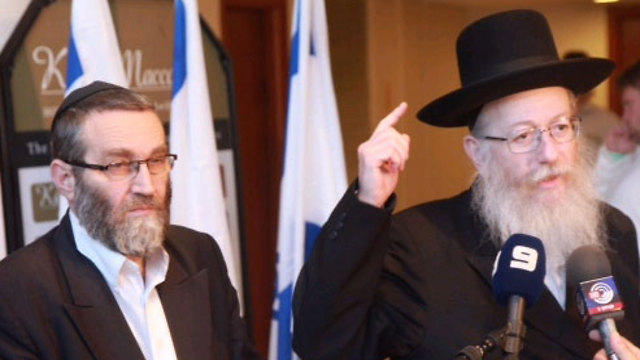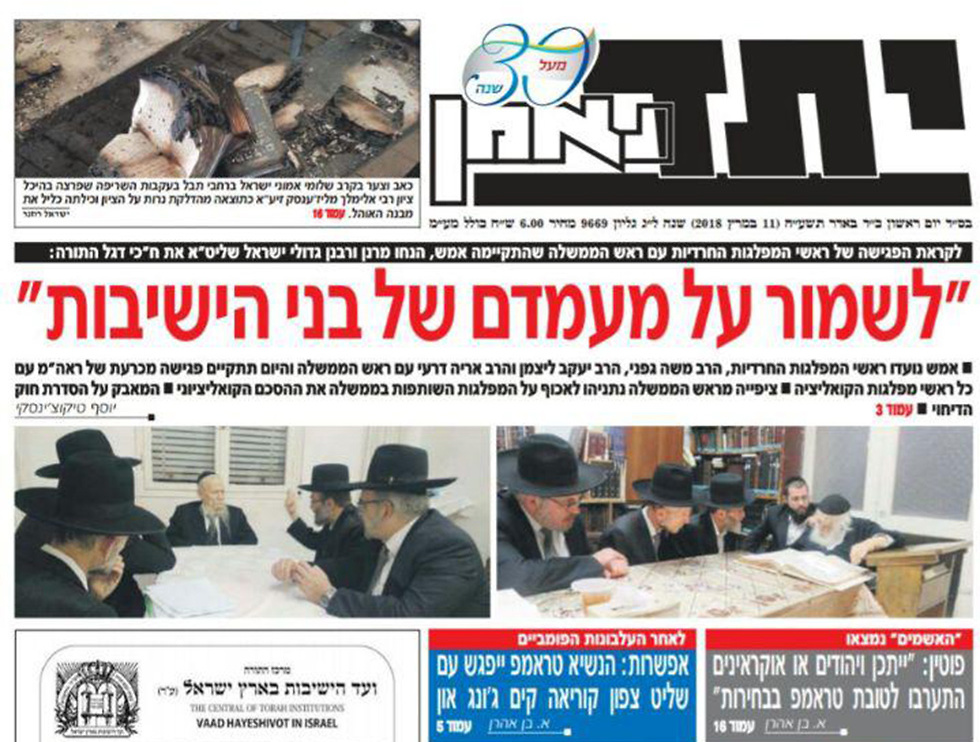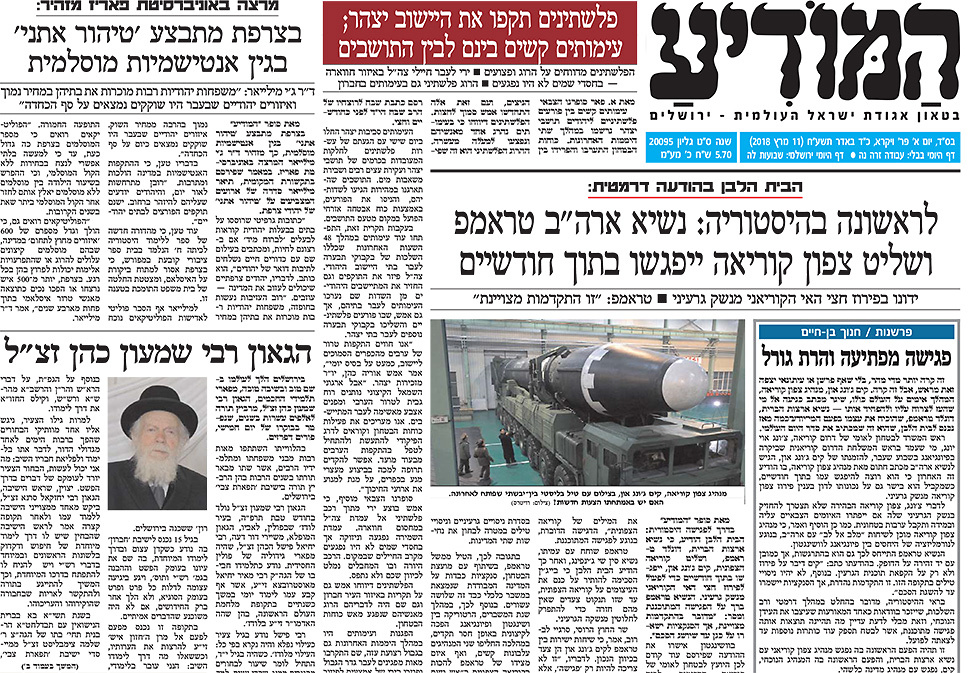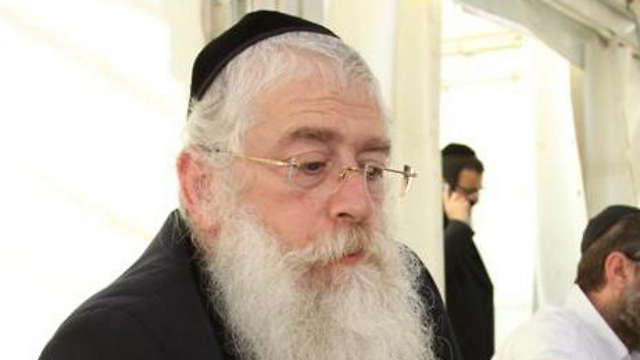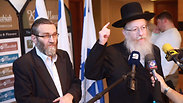
Haredi papers to PM: Don't push the world of Torah into a corner
While the Lithuanian rabbis moderated their stance on draft law, their mouthpiece Yated Ne'eman stresses: status quo will remain; Litzman's paper Hamodia keeps a low profile, making no mention of the crisis on its front page, and Deputy Minister Meir Porush takes a hardline stance.
Haredi party leaders continued to send political messages to Prime Minister Benjamin Netanyahu on Sunday morning through the ultra-Orthodox newspapers, just hours after Shas head Ayreh Deri and United Torah Judaism (UTJ) leaders Yaakov Litzman and Moshe Gafni met with the prime minister but failed to resolve the crisis that is threatening the stability of the coalition government.
UTJ has threatened not to support the 2019 state budget unless an IDF conscription bill, which would solicit state recognition of Torah studies to being equal to military service, is brought for a vote and passed in the Knesset first.
After rabbis from the Lithuanian sector moderated UTJ's positions, approving an alternative wording for the legislation and a longer timetable for its approval, their mouthpiece Yated Ne'eman stressed that in any case, the status quo must be maintained "as it has been for decades."
Instead of "conscription," a word the Haredi sector considers obscene, the paper reported on the "Postponement Law," and insisted no compromise would be accepted that entails mandatory army service for yeshiva students.
"The next 24 hours are crucial, during which it will be decided whether the government's days have ended or not," the paper said. "The ball is still in the prime minister's court."
Hamodia, a paper affiliated with Litzman, who started the crisis, continued maintaining a low profile, with its first page—and news section in general—featuring no mention of the crisis, or the meeting held the night before.
The draft law crisis was only mentioned in the editorial article, where the Hasidic daily stressed once more that "our representatives are committed to the decisions of the Council of Torah Sages," and it will therefore be the rabbis—and primarily the rebbe of Ger—who will decide whether to agree to the offered compromise, as this matter is "fundamental, critical and existential for us."
"In any case, we cannot imagine they would succeed, heavens forbid, in harming the holy yeshivot and their students, whose Torah studies are their occupation. We believe completely that there isn't and there won't be a force in this world that could disconnect the Jews from their Torah and the heritage of their ancestors... this is a 'red line' that we will not cross, and we pray will not be crossed."
The paper also had a message to the heads of the coalition: "Don't push the world of Torah into a corner."
Litzman's place as the uncompromising hardliner has now been taken by Deputy Minister Meir Porush, also of UTJ's Hasidic faction, who was one of the writers of the conscription bill and as such can influence the Council of Torah Sages' decision on the matter.
In his own mouthpiece, HaMevaser, Porush said he was opposed the offered compromise, as it includes the option of canceling the law and enlisting yeshiva students to mandatory army service if they don't meet the enlistment quota.
"We can't live with a law that says that in a certain situation, Torah students won't receive draft postponements," he was quoted by the paper as saying, adding that "this is the well-known position from which we cannot budge."
Porush explained that under the existing law—which is set to expire in September 2018 after the High Court of Justice canceled it—the defense minister has the authority to postpone the enlistment of yeshiva students even if the enlistment quotas are not met.
The Haredi politicians' eyes are now on the Hasidic Council of Torah Sages, which is supposed to decided on whether to accept the offered compromise and backtrack on their demand to pass the bill into law before the Passover hiatus. While the Lithuanian rabbis have already made a decision on the topic, the rebbe of Ger, Litzman's rabbi and the president of the Council, is stalling: He was presented with the proposed compromise on Friday, but has so far not instructed the politicians on the matter.
The Hasidic rabbis (represented by Litzman) are believed to be learning towards moderating their original position and falling into line with the Lithuanians (represented by Gafni) and Shas.
But to avoid being seen as compromisers, they are first waiting to see what how Sunday's meeting between Netanyahu and the coalition heads ends. If the talks collapse and early elections are called, the Council would be spared the need to make a decision on the matter.










